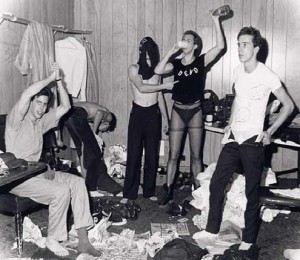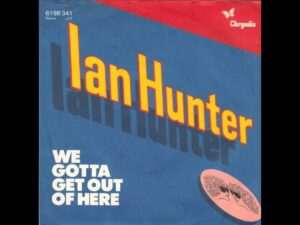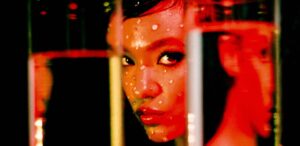Many people who discovered punk rock in the late 1970s or early 1980s have a variation on this story: “I was walking down the street, minding my own business, when a car slowed down and a meathead yelled ‘DEVO!’ Then a beer bottle hit me in the head and the car sped away.” By the time I joined my first band in 1985, the meatheads no longer cared. Instead, intellectuals were the ones shouting “DEVO!” and throwing bottles. Not literally, but they were purging record collections at college radio stations like KJHK and KCMU (now KEXP), or writing articles about how punk rock was dated and the alternative flavor of the month was timeless. The Seattle Weekly recently ran a feature article by John Roderick entitled “Punk Rock Is Bullshit,” and reading it made me think of shouts and flying bottles.
BOTTLE ONE: PUNK MUSIC IS MEDIOCRE.
Roderick is smart enough to state that “punk music” never really existed, but fails to explain why. Music critic Dave Marsh first applied the term punk rock to Detroit’s ? and the Mysterians in a 1971 issue of CREEM magazine. Four years later, a New York magazine called Punk appeared, specializing in the musically varied bands that played the CBGB nightclub out of necessity, from the Ramones to Blondie to Television to Talking Heads. Some of these bands would later be labeled “power pop” or “new wave.” Eventually the idea of a “punk sound” developed, but for every band sticking with tradition, another was messing around with reggae or country or even disco. Roderick finds this vast range of music to be adequate rock and roll at best. His loss.
BOTTLE TWO: PUNK IDEOLOGY IS INCOHERENT.
Just as punk music never really existed, neither did punk ideology. The CBGB bands were mostly apolitical. The Sex Pistols specialized in political stunts, singing about “Anarchy in the UK” and wearing swastikas for shock value. Any band that really did believe in White Power was mostly despised. Other bands adopted a vague opposition to capitalism, which lives on today in accusations of “selling out” directed at any musician who associates with a large corporation. Despite this fragmentation, Roderick somehow expected punk rock to remove Ronald Reagan from power. Not even a unified group of artists could have done so.
BOTTLE THREE: PUNK IS ALWAYS NEGATIVE.
Elitism, apathy, and substance abuse can be found in almost any group of people. Roderick, however, writes as though these traits are unique to punk rock and completely define it. Some online comments on his article mention a more positive side: for example, discovering feminism through participation in the music scene. In a follow-up radio interview with KIRO, Roderick dismisses these responses by claiming that nobody in the early days of punk rock identified with beliefs like feminism. He comes across like a Fox News personality who assumes that the most idiotic statement by any liberal is the opinion of all liberals, while never allowing liberals any credit—even for the commentator’s weekends and vacations.
BOTTLE FOUR: PUNK IMPROVED NOTHING.
When the Ramones first played CBGB, few nightclubs in any town were booking unsigned original bands. National acts and Top 40 covers dominated. The independent record labels of the 1960s were mostly gone. So were the free-form FM radio stations, and college radio barely existed. By the early 1980s, a national network of alternative nightclubs, radio stations, record labels, and magazines had been created. Somehow, punk musicians and listeners managed to take a long enough break from intoxication and complaining to help bring this network about. It still exists today, although it now favors mellower bands like Roderick’s own Long Winters.
THE FINAL “DEVO!”
Roderick’s conclusion that “smart” bands should avoid singing about “hard lessons” was one “DEVO!” too many. I usually avoid music debates, having spent way too much time grumbling about hipsters in the 1990s. The longer I thought about the article, the more I realized that the issue is larger than Roderick’s musical taste or personal experiences. The alternative media, in general, serves a target demographic that has either outgrown rock and roll, or never cared about it in the first place. Anyone associated with punk rock and not already famous is stuck with making the best of life beneath the underground.
–



